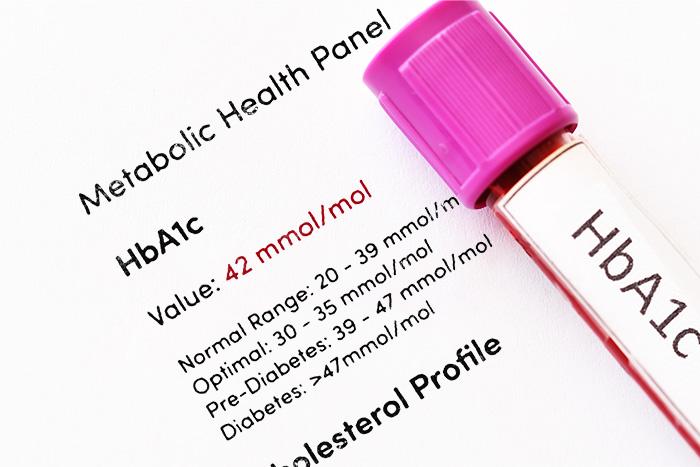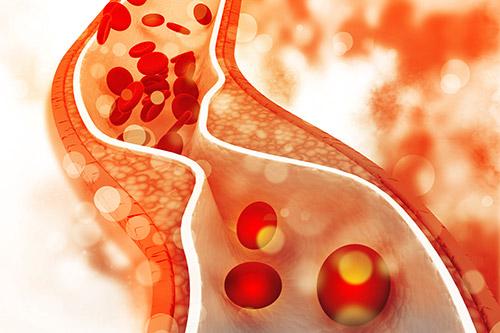Five key numbers to know to optimise your health and how to get them.
Published
Five key numbers to know to optimise your health
Metabolic health is the key driver of healthspan and lifespan so my top 5 numbers to know are all about metabolic health.
- Blood pressure
- Cholesterol levels
- HbA1c (sugar-handling)
- Waist circumference
- Lipoprotein (a) level
We’re constantly bombarded with numbers and data about our health. But, when it comes to health, some numbers are more important than others. So which health numbers give you the most bang for your buck? Here are my top five numbers to know about your health and how you can get hold of them.
But before we go into the details, you need to know why I chose them, and it’s all about metabolic health.
Metabolic health
If you want to live in good health for a long time, you need to have great metabolic health.
When it comes to living longer, in better health, your metabolic health is undoubtedly the most important factor.
You can think of your metabolic health as a measure of how your body's coping with the everyday challenges you throw at, such as what you eat, how you move, sleep and stress. Poor metabolic health means that your body isn’t coping well and this accelerates ageing and increases the risk of the most common causes of death - heart disease, cancer, stroke, diabetes and dementia.
So if you want to live in good health for a long time, you need to have great metabolic health. Everything else flows from there. It’s no surprise then that my 5 key numbers to know to optimise your health all relate to metabolic health.
Like many aspects of health, metabolic health is a spectrum. At one end, you have good metabolic health and at the other you have metabolic syndrome which is a sign of poor metabolic health.
The definition of metabolic syndrome
Metabolic syndrome is defined by the presence of 3 of any of the following:
- High blood pressure
- High triglyceride levels
- Low HDL levels
- High glucose
- Being overweight
1. Blood pressure
Anything above 120/80 is high whether you’re 8, 28 or 80.
High blood pressure plays a key role in the development of many conditions, including heart disease, stroke, dementia and kidney disease. A recent analysis found that 50% of adults have high blood pressure1.
So what should your blood pressure be?
Regardless of your age or sex, your blood pressure should be less than 120/80. Note that I said, “regardless of your age or sex”. Anything above 120/80 is high whether you’re 8, 28 or 80.
You can measure your blood pressure at your local pharmacy, your GP or at home. I’d recommend getting a simple blood pressure machine and keeping track of your blood pressure at home.
Do not accept a blood pressure higher than 120/80. We have good evidence from a large randomised trial that targeting a blood pressure under 120/80 reduces the risk of heart disease and even overall mortality2.
How to measure your blood pressure at home
Get a validated automated blood pressure monitor (Omron make some good ones that aren’t expensive).
- Attach the cuff to your arm as per the instructions
- Sit upright with your arm supported at the level of your heart, your legs uncrossed and your back support. Relax in this position for 5 minutes.
- Take your blood pressure and note down the reading.
- Relax for a few minutes and repeat.
- Take the average of the two readings to get your blood pressure.
- Ideally you should do this twice a day (morning and evening) for 7 days. If your levels are consistently over 120/80 then please see your doctor.
2. Cholesterol levels
Atherosclerosis starts in your teens.
Ok, this one’s a little bit of a cheat because a standard cholesterol blood test usually includes at least 5 different biomarkers. But I’m going to concentrate on just one: the amount of cholesterol on your low density lipoproteins or LDL-C.
Higher LDL-C cholesterol is one of the factors that causes atherosclerosis, or narrowing of the blood vessels. In turn, atherosclerosis is the process underlying heart disease which causes 1-in-4 deaths. What’s more, a higher non-HDL cholesterol is also associated with an increased risk of stroke and dementia3.
There are two key things I want you to bear in mind when it comes to your LDL-C level:
- A lower level is better. Even within the normal range, we know that a lower LDL-C is better than a higher LDL-C. The lower you can get your LDL-C, the lower your heart disease risk4.
- High cholesterol is not just a problem in older adults. The process of atherosclerosis starts in your teens and 1-in-4 adults between 20 and 40 already have high cholesterol5.
It’s simple to measure your LDL cholesterol level with our cholesterol blood test.
3. HbA1c - sugar-handling
How your body handles your blood sugar is another key marker of your metabolic health. At the extreme end of impaired sugar-handling we have diabetes. But even before then, we know that better blood sugar-control is associated with a lower risk of cancer, heart disease and death from any cause6.
Haemoglobin A1c or HbA1c is a biomarker that looks at how well your body has been handling blood sugar over the last 3 months. Check out [what-is-hba1c-and-whats-the-hba1c-normal-range:[our article on HbA1c]] for more info.
What are optimal HbA1c levels?
| HbA1c (mmol/mol) | Diagnosis |
| 30 - 35 | Optimal |
| 35 - 39 | Normal |
| 39 - 47 | Pre-diabetes |
| 48 and above | Diabetes |
Ideally we should all be aiming for the optimal HbA1c between 30 and 35mmol/mol. You can check your HbA1c with a simple finger-prick blood test.
4. Waist circumference
You might think you want to lose weight but what you really want to lose is fat. Specifically you want to lose so-called “visceral fat” which is the fat inside your organs and muscles that causes poor metabolic health. Check our article on insulin resistance to learn more about this.
The best way to measure the amount of visceral fat in your body is with a type of scan called a DEXA scan. Failing that, waist circumference has been shown to be a more accurate predictor of visceral fat than other measures like weight or body mass index (BMI) and to correlates better with future risk of death7.
Men should aim for a waist circumference below 90cm and women should be below 80cm.
How to measure your waist circumference
Ideally you do this with a tape measure but you could use a piece of string and measure it against a straight ruler later.
- Find the top of your hip bones and the bottom of your ribs - the space between these two landmarks is your waist. For many of us this will be at the level of the belly button.
- Wrap the tape measure around your waist so it’s snug but not crazy tight.
- Breathe out normally and take the measurement - this is your waist circumference.
5. Lipoprotein (a) level
I’ll admit to being a little biased here because I have a high Lp(a) level. But bear with me while I explain why knowing your lipoprotein (a) level (Lp(a) for short) is crucial.
Lp(a) is a type of lipoprotein like low density lipoprotein (LDL) that we mentioned earlier. Like LDL, Lp(a) can get into your artery walls and cause atherosclerosis, only Lp(a) is supercharged and causes atherosclerosis far more readily than LDL. Unlike LDL, your Lp(a) level is almost entirely determined by your genes. In fact, having a high Lp(a) level is the commonest genetic risk factor for heart disease, affecting roughly 1-in-5 of us. A high Lp(a) level also increases your risk of stroke, kidney disease and narrowing of one of your heart valves.
I recently wrote an article about Lp(a) that you might find helpful if you haven’t heard of it before.
Because your Lp(a) level is largely determined by your genes, you only need to measure the level once. If it’s high, it’s going to stay high. Ditto if it’s low. Guidelines recommend that we all have our Lp(a) level measured8 but unfortunately this isn’t something your GP can do for you.
No to worry, Selph to the rescue! You can (and definitely should) easily check your Lp(a) level with a simple blood test. You’ll get a report explaining what your level means and any actions to take if it’s high.
You can measure all of these blood biomarkers with our Metabolic Health Blood Test
Get tips on better health
Sign up to our emails on the better way to better health.
We'll keep you up-to-date with the latest research, expert articles and new ways to get more years of better health.








-blood-test-box.jpg&w=3840&q=75)